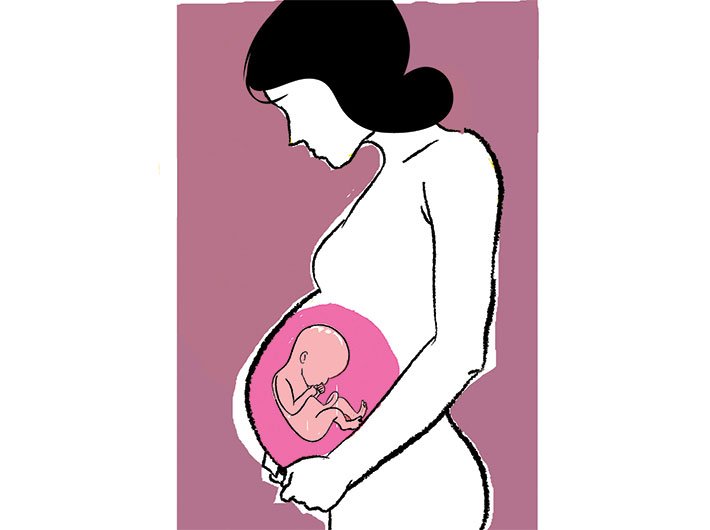The pro-life bias in the abortion law undermines the rights of women as they cannot terminate even an early pregnancy at will
A recent Bombay high court judgment has emphasised that the right of women to make motherhood choices – whether or not to get pregnant and stay pregnant – is an inalienable natural right. This has given strength to the demand for changes in the law regulating termination of pregnancy to give more autonomy to women over their bodies.
Though pregnancy can be terminated up to the 20th week, the Medical Termination of Pregnancy Act, 1971 allows abortion on the request of a woman only if the pregnancy endangers the health of the woman or there is a risk of the child being born with disabilities.
The law, as it stands today, does not give a free choice of abortion to a woman even in the early stages of pregnancy. The need for extending the 20-week deadline in view of advancement in medical technology is a separate issue which calls for a thorough review of the law.
The 20-week deadline has been posing practical problems, often requiring judicial intervention to fill the gaps in law. Though the main concern has been to ensure that there is no conflict in law which, on one hand, allows abortion to prevent birth of children with disabilities and, on the other, some congenital defects are detected only after 20 weeks, the judiciary has stressed in a number of recent judgments that the purpose of the law on termination of pregnancy was not just to save life of a prospective child but also to protect the coveted right of women to make reproductive choices.
The imbalance between the two competing rights – of the mother and the prospective child – and rigidity in law can have disastrous consequences. In 2012, a dentist of Indian origin died in Ireland because doctors refused abortion on account of the strictly pro-life approach in the country. In 2008, the suffering of a woman carrying a defective baby ended with miscarriage after the Bombay high court refused to allow abortion despite the fact that the defect of the nature found in the foetus could have been detected only after the deadline of 20 weeks. Besides, there have been innumerable cases of rape victims approaching courts for abortion after the 20-week deadline.
While the law seems to have a pro-life focus, judiciary has often stressed that the right to make reproductive choices flowed from the fundamental right to life and personal liberty guaranteed under Article 21 of the constitution. Though the courts have attempted to strike a balance, the pro-life focus of the 45-year-old law often undermines a woman’s right to decide what to do with her own body, including whether or not to get pregnant and stay pregnant.
The 1971 law classifies pregnancy into two categories for the purposes of abortion – up to 12 weeks and between 12 and 20 weeks – but does not give a pregnant woman the unqualified right to seek abortion even in the early stages of pregnancy up to 12 weeks. Abortion is allowed only when a medical practitioner is of the opinion that there is a risk to the life or health (physical or mental) of the pregnant woman [section 3(2)(i)] or a risk of the child being born with physical or mental abnormalities [section 3(2)(ii)]. While the opinion of one doctor is required for pregnancy up to 12 weeks, a foetus between 12 and 20 weeks can be aborted only after opinion from two doctors. (Another emergency provision, which has nothing to do with the request of a woman, allows doctors to terminate pregnancy at any stage to save the life of a woman.)
The law, based on the UK’s Abortion Act of 1967, does not give a woman an unqualified right or choice to seek abortion even in the initial stages of pregnancy. Incidentally, two years after India enacted the law, the US supreme court in Roe Versus Wade [410 US 113 (1973)] held that the right of a woman to seek an abortion during the early stages of pregnancy came within the constitutionally protected ‘right to privacy’. In 2009, India’s apex court also held the right to make reproductive choices to be a fundamental right but stressed that the conditions aimed at protecting the life of the prospective child were reasonable restrictions on the right. The court, however, was not considering the constitutional validity of the law and the observation was made without hearing arguments on the point.
“There is no doubt that a woman’s right to make reproductive choices is also a dimension of ‘personal liberty’ as understood under Article 21. It is important to recognise that reproductive choices can be exercised to procreate as well as to abstain from procreating,” the supreme court observed in the 2009 judgment. The observation was made while setting aside an order by the Punjab and Haryana high court directing abortion against the wishes of a mentally retarded rape victim.
Coming to the Bombay high court judgment delivered on September 19, the observations support the pro-choice approach but the court stressed that though section 3 of the 1971 Act restricted the right to reproductive choice, it protected the right of a woman to say no to pregnancy if her mental or physical health was at stake.
Given the fact that the court observed that going against a woman’s wishes would invariably affect her health, the conclusion justifying restrictions in circumstances where the mental health was not at stake is unconvincing.
“If a woman does not want to continue with the pregnancy, then forcing her to do so represents a violation of the woman’s bodily integrity and aggravates her mental trauma which would be deleterious to her mental health,” the high court observed. The law, which the court subsequently sought to justify, however, does not give unqualified right to women to seek abortion.
Further, debunking the pro-life approach reflected in the law, the high court observed: “According to international human rights law, a person is vested with human rights only at birth; an unborn foetus is not an entity with human rights.” In what supports the view, Explanation 3 to section 299 of the Indian penal code states that the causing death of a child in the mother’s womb is not homicide.
The high court judgment attached great importance to the right of women to make reproductive choices by stressing it was a natural right which is inalienable but it failed to strike a proper balance.
The supreme court in its 2009 judgment attempted to justify the pro-life approach of the law while at the same time accepting that the right of women (pro-choice approach) to seek abortion could not be ignored. “However, in the case of pregnant women there is also a ‘compelling state interest’ in protecting the life of the prospective child. Therefore, the termination of a pregnancy is only permitted when the conditions specified in the applicable statute have been fulfilled,” the court observed.
The court unequivocally held that the right to make reproductive choices was a fundamental right guaranteed under Article 21. Though courts have stressed that restrictions could coexist with the right, only fair, just and reasonable limitations on the right can be justified.
In 1996, South Africa created a balance between pro-life and pro-choice approach by giving absolute freedom to women to go for abortion up to the 12th week of pregnancy. A draft amendment circulated by the government in 2014 proposes to create a similar balance while extending the deadline for abortion taking into account advancement in medical technology. The sooner the amendments are made, the better.
Singh is a Delhi-based lawyer.



